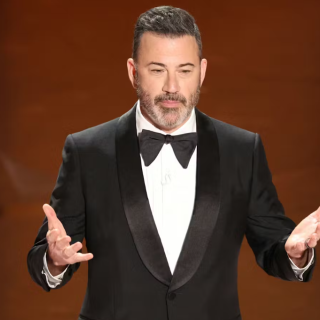Advertisement
This article first appeared in the Buckeye Flame
Ohio Democrats have introduced two bills in both the state Senate and House of Representatives that would ban conversion therapy on minors, the universally discredited practice attempting to change an individual’s sexual orientation or gender identity.
Neither bill has been given a single hearing in the Republican-controlled Statehouse, and there isn’t a clear path to advance the legislation there.
Meanwhile, miles away from Columbus, LGBTQ+ activist Brandon West is working with local officials to ban conversion therapy on minors in his corner of Northeast Ohio.
West successfully pushed Lorain City Council in September 2024 to pass an ordinance that banned conversion therapy on minors. Now, he is working with Cuyahoga County officials to get a similar ordinance approved at the county level. West also has his sights set on Summit County and the city of Vermillion, he said.
“I believe that there’s more of a chance that you’ll get something done locally than you will at the Statehouse,” West said.
West’s efforts are the latest example of local organizers taking LGBTQ+ equality into their own hands as state lawmakers fail to advance a single pro-LGBTQ+ bill.
In the last Ohio General Assembly, nine LGBTQ+ equality bills were introduced. Only one advanced to a second committee hearing. That bill – to create an exemption so trans candidates would not have to list their deadnames on election materials – didn’t make it out of committee.
By contrast, local Ohio municipalities have passed LGBTQ+ equality ordinances from LGBTQ+-inclusive nondiscrimination protections, to proclamations declaring June as Pride Month, to the bans on conversion therapy on minors, all of which Democratic state lawmakers have proposed and failed to pass.
As efforts by state lawmakers to pass LGBTQ+ equality bills continue to falter, LGBTQ+ advocates question: Is local action the only viable option?
State lawmakers know the scoreDemocratic state lawmakers harbor no illusions about outcomes of their bills to move towards LGBTQ+ equality.
Rep. Karen Brownlee (D-Symmes Township) introduced bills this year to ban conversion therapy and broaden parents’ rights to a wide range of support for their LGBTQ+ children including gender-affirming care and bathroom access.
She knows the uphill climb both bills face.
“I don’t foresee these bills gaining a lot of purchase with this Republican supermajority,” she said.
Still, Brownlee said Republican opposition should not stop Democratic lawmakers from trying. She points to former Georgia State Rep. Stacey Abrams’ viral video outlining 10 steps towards autocracy as illustrating the importance of elected officials speaking up to create policy and “support the world in the most healthy and most equitable way possible.”
“If we are silent, we are obeying a power we don’t agree with,” Brownlee said..
Sen. Beth Liston (D-Dublin) agrees. Liston, co-sponsor of the Ohio Senate bill to ban conversion therapy on minors, said that it’s important to make sure that Ohioans know that not every lawmaker supports attacks against the LGBTQ+ community.
“My hope is that [pro-LGBTQ+ equality] bills can be something that people turn to if they’re seeing a negative bill and feeling that the state is against them,” she said.
Liston also believes that bills like the proposed ban on conversion therapy can create a conversation that allows Ohioans to learn more about the harm being inflicted on the LGBTQ+ community.
“Someone who hasn’t heard about conversion therapy learns about it and there’s an opportunity to advocate and explain in a way that’s deeper than just a political talking point,” she said.
Liston said that local efforts can achieve different results than those at the state level, particularly as citizens and legislators are likely to “react better if they know someone directly impacted.”
“These bills and bans at the local level bring conversion therapy more to the public forefront so that people can learn,” she said.
No place like home (rule)Passing LGBTQ+-equality legislation at the local level is not without its drawbacks, especially as there are differing opinions on what counties and municipalities can and cannot do.
Much of the debate revolves around Ohio’s “home rule” amendment to the constitution.
Home rule was added during the Progressive Era in the 1920s to combat political machines and monopolizing private power companies, said Tom Sutton, faculty emeritus of political science at Baldwin Wallace University. Ohio municipalities that have 5,000 or more residents have the power to regulate anything considered a local issue.
“Public health and public safety are the first and foremost responsibilities of all levels of government, whether they’re a dictatorship, democracy or anything else,” he said.
The city of Lorain’s ordinance to ban conversion therapy on minors would be considered a public health issue, he said. Making violation of the ordinance a misdemeanor is a move in the right direction.
”I think it really gets people’s attention in a good way because it’s a serious issue,” he said.
But there’s a catch. The state has the “ultimate responsibility” over minors, he said. Ohio then delegates that responsibility to counties.
“If, for instance, a child is found to be neglected, abused, et cetera – the body responsible for handling that is the county,” Sutton said.
So how then would the city of Lorain enforce its ban on conversion therapy? Sutton says that it’s just complicated until a case arises that would force city and county officials to determine who actually has jurisdiction.
“It’s a grey area,” Sutton said.
The road aheadDespite those concerns, West said he’s pushing ahead because he thinks local efforts will bear more fruit than statewide efforts. He recalled talking with a “very hardcore Republican” about crafting the ordinance.
“ I know that they said that they are more now open to LGBTQ+ issues because of how I made them feel involved,” West said. “ I think that can be strengthened on a broader scale.”
He hopes local efforts like his will inspire people across the state to advocate for bans where they live – even if officials are Republicans whose legislators have defended conversion therapy in the past.
Statewide LGBTQ+ advocacy organization Equality Ohio said the local approach is a vital tool in its work to achieve LGBTQ+ equality.
“Until a full statewide ban is passed, we’ll continue this work, community by community—because every LGBTQ+ person in Ohio, like all Ohioans, deserve safety, support and the freedom to grow into who they truly are,” said Dwayne Steward, executive director of Equality Ohio.
Senate Minority Leader Nickie Antonio (D-Lakewood), the co-sponsor of the Senate’s proposed ban on conversion therapy, said that local efforts can help give state lawmakers the momentum to move forward.
“[Local efforts to ban conversion therapy] would make a huge statement,” Antonio said at a July Human Rights Campaign event.
Rep. Brownlee highlighted the importance of local and statewide LGBTQ+ equality efforts being in harmony..
“For me, it does not feel like a power struggle,” Brownlee said. “It feels like we’re all rowing the boat in the same direction.” 🔥
IGNITE ACTION- The Buckeye Flame’s Ohio LGBTQ+ legislation guide for 2025 can be found here.
- To register to vote or to check your voter eligibility status in the state of Ohio, click here.
- To find contact information for your Ohio state representative, click here.
- To find contact information for your Ohio state senator, click here.



